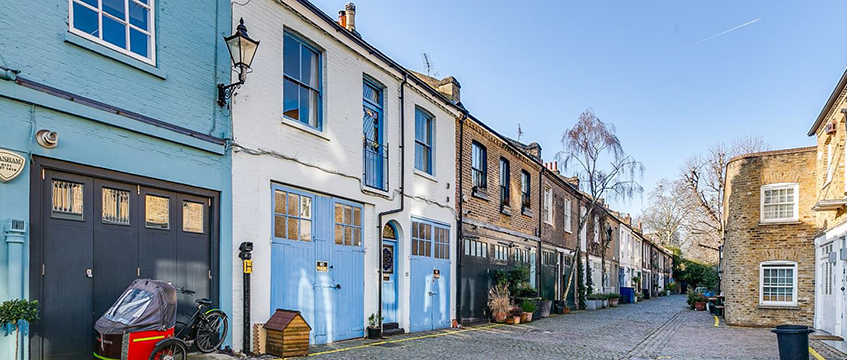Close to £40m of assets changed hands at hastily arranged live-streamed auctions last week, just days after the UK went into lockdown in response to the coronavirus.
The largest was held by Savills, which raised £18.5m on 26 March, selling 45 of 67 lots offered, a 67% success rate.
Talking via a live video stream from his home, with assistance from an IT specialist, auctioneer Robin Howeson received internet, proxy and telephone bids via almost 30 staff working remotely.
Head of auctions Chris Coleman-Smith said Howeson had done “a remarkable job in keeping the day and proceedings running smoothly”.
“To be able to deliver such strong results for our clients via our first ever remote-bidding-only auction is a great achievement,” he said.
“We know that the auction is often seen as the front line of housing market activity, so the result is significant, and the fact that five properties went under the hammer for over £1m indicates the faith that buyers have in the market.”
Auction House London raised £11m at its 25 March sale, selling 79% of 65 lots offered via a live broadcast from its offices. AHL had originally catalogued 131 lots, but withdrew those with no registered bids. AHL said that vendors only withdrew two lots prior.
Like Howeson, AHL director and auctioneer Andrew Binstock had just the one colleague with him in order to comply with new government restrictions on gatherings of more than two people.
“We managed to run the auction with myself doing the auctioneering and one of my colleagues being tutored by telephone about how to work the technical side of things,” Binstock said.
“Given the circumstances, the sale was an overwhelming success. Obviously we would have sold more in a normal room auction. When we launched our catalogue three weeks ago, it was into a normal world. Then suddenly the world changed and we had to adapt quickly.” Binstock said auctioneers now faced further challenges around how to safely conduct viewings going forward (see below).
South of England auctioneer Clive Emson sold a further £8.7m across two live-streamed auctions on 23 and 24 March.
Positive sign
March auction figures are unlikely to show a continuation of the revival seen in February – when ballrooms were packed – but David Sandeman, founder of data specialist Essential Information Group, said these first remote sales were a positive sign.
“Everyone appears to be embracing this new way of transacting and, when the government finally allows gatherings again, I think it will be up to the market to decide whether to continue.”
Allsop is also poised to hold two online-only sales, while Acuitus has cancelled its sale.
Speaking ahead of the March sales, Neel Shah, managing director of Deekay Properties, said he believed they should be cancelled because vendors entered their properties into in-room auctions and now risked receiving fewer bids.
However, Nicholas Cowell, director of London landlord Cowell Group, said he would continue to bid on lots coming up in the March auctions as planned.
“No-one can predict the bottom of the market, and we don’t know what will be on the other side, but we always want to buy where we can see value,” he said.
Top lots
Savills’ biggest sale was a four-bedroom semi-detached house in Queens Park, NW6, which raised £1.675m.
Other notable sales included a 2,127 sq ft mews house in Holland Park, W14 (pictured), offered by landlord Grainger and sold for £1.25m; an office building with development potential in East Dulwich, SE22, which sold for £1.085m; and a four-bedroom mid-terrace house in need of modernisation in Putney, SW15, which was sold by the London Borough of Wandsworth for £900,000.
AHL’s highest price was achieved for an end-of-terrace property arranged as six flats in Tottenham, N17, sold by fixed-charge receivers. It sold for its guide price of £1.4m.
Viewing problems
“Our biggest problem now is arranging viewings,” said Andrew Binstock, director and auctioneer at Auction House London. “Most people are going to want to see a property before they go ahead and spend a considerable amount of money on it. Unlike many auctioneers, a lot of our sales go to end-users and these people usually do not feel comfortable buying properties they have not seen. But we just don’t know how we can conduct many viewings safely and legally at the moment.
“Ordinarily we don’t conduct viewings on commercial premises such as cafes and shops because purchasers can just walk into them at any time during opening hours, but the new rules mean that these businesses can no longer open,” he added. “Much of the stock we offer is bought and sold without viewings such as land, development sites, ground rents and some receivership stock, and it is this sort of stock we expect to form the backbone of our catalogue going forward.”











